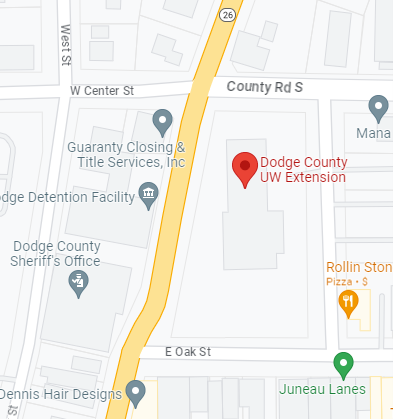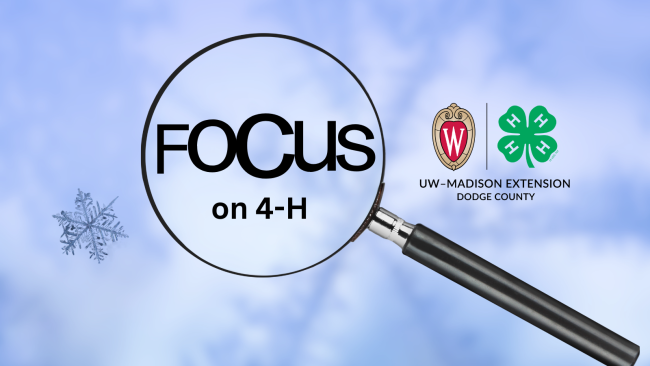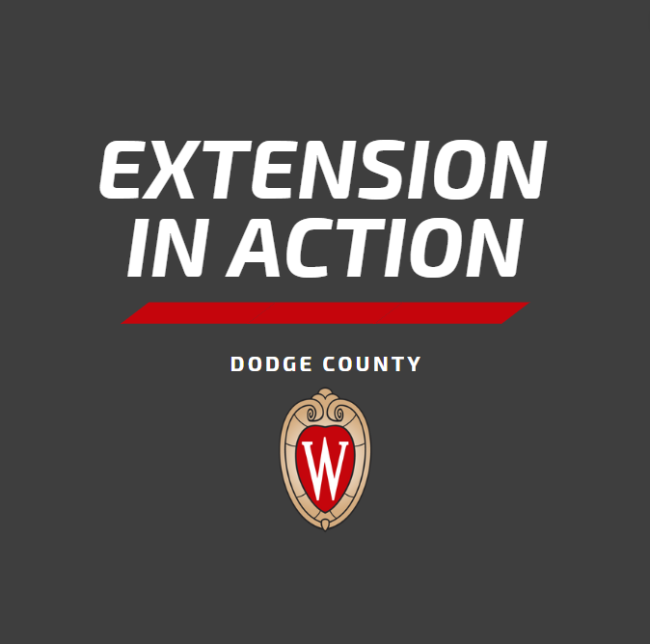Welcome to Extension!
How Can We Help You?
Our Office
UW-Madison Division of Extension
Dodge County
127 E Oak Street
Juneau, WI 53039
Phone: 920-386-3790
Fax: 920-386-3928
Hours: Monday – Friday 8am – 4:30pm
This office is closed all major holidays and the day after Thanksgiving.
Where we are located

Connect with Us
Extension Dodge County Happenings
| Sunday | Monday | Tuesday | Wednesday | Thursday | Friday | Saturday |
|---|---|---|---|---|---|---|
1 | 2 | 3 | 4 | 5 | 6 | 7 |
8 | 9 | 10 | 11 | 12 | 13 | 14 |
15 | 16 | 17 | 18 | 19 | 20 | 21 |
22 | 23 | 24 | 25 | 26 | 27 | 28 |







